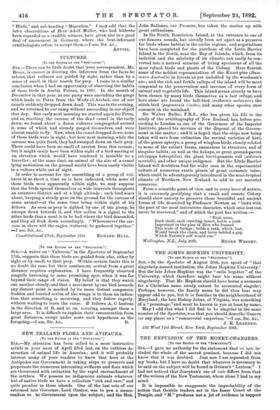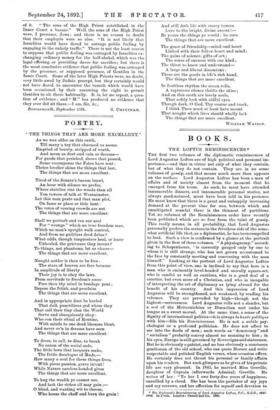THE EXPULSION OF THE MONEY-CHANGERS.
[To THE EDITOR or THE "SPECTATOR.') SIR,—I gave no authority for the statement that TO 151)4 in- cluded the whole of the sacred precinct, because I did not know that it was doubted. Just now I am separated from my books, but I have no doubt that whatever is necessary to be said on the subject will be found in Grimm's "Lexicon." I had not noticed that Josephus's use of hpOY differs from that of the writers of the New Testament, whom alone I had in my- mind.
It is impossible to exaggerate the improbability of the notion that Gentile traders sat in the Inner Court of the Temple, and "M." produces not a jot of evidence in support of it. " The sons of the High Priest established in the Inner Court a bazaar." Well, the sons of the High Priest were, I presume, Jews ; and there is no reason to doubt that their employes were so also. "It is not likely that Israelites would have dared to outrage public feeling by engaging in the unholy traffic." There is not the least reason to suppose that public feeling was outraged by Israelites ex- changing ordinary money for the half-shekel, which was the legal offering, or providing doves for sacrifice; but there is the most conclusive evidence that public feeling was outraged by the presence, or supposed presence, of Gentiles in the Inner Court. Some of the later High Priests were, no doubt, very little awed by Judaic precept, but they certainly would . not have dared to encounter the tumult which would have been occasioned by their assuming the right to permit Gentiles to sit there habitually. It is, let me repeat, a ques- tion of evidence ; and " M." has produced no evidence that they ever did sit there.—I am, Sir, &c., Bournemouth, September 15th. S. CHEETHAM.



































 Previous page
Previous page